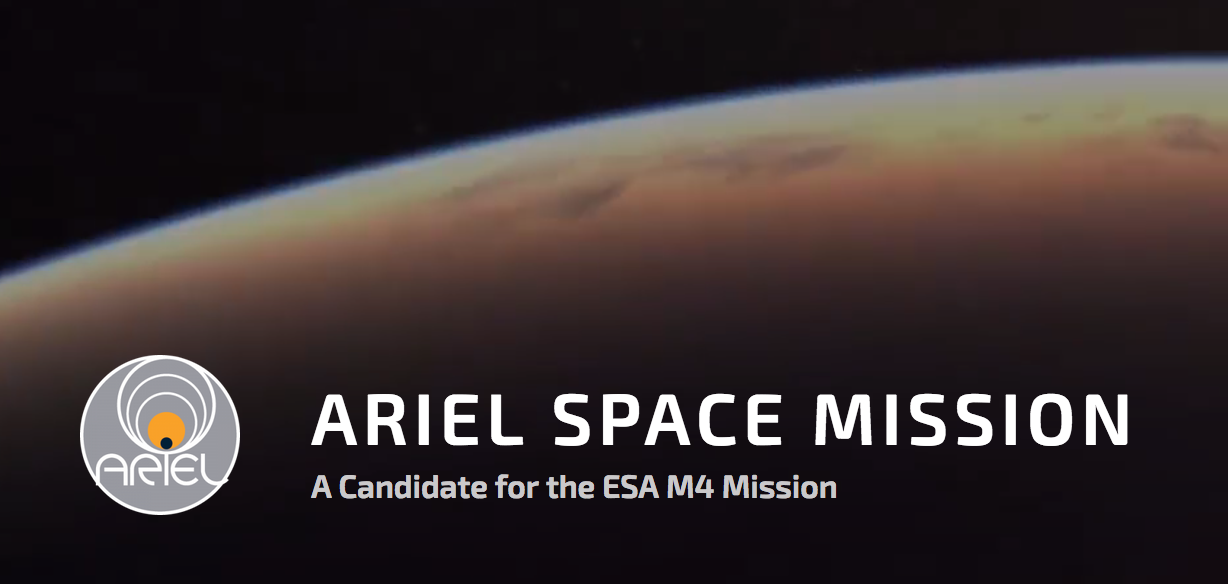-
2028 ESA Space Mission Focuses on Nature of Exoplanets
April 13, 2018 / Written by: Miki Huynh
The ARIEL (Atmospheric Remote-sensing Exoplanet Large-survey) space mission has been selected by the European Space Agency (ESA) as the next medium-class science mission. Image source: ARIEL Space Mission / ESA.In March of 2018, ARIEL (Atmospheric Remote-sensing Exoplanet Large-survey), developed by a consortium of more than 50 institutes from 12 European countries, was selected as the European Space Agency’s next medium-class mission, the first dedicated to exoplanet atmospheres. The four-year mission, planned for launch in 2028, will observe 1000 planets orbiting distant stars and make the first large-scale survey of the chemistry of the atmospheres.
“ARIEL will study a statistically large sample of exoplanets to give us a truly representative picture of what these planets are like. This will enable us to answer questions about how the chemistry of a planet links to the environment in which it forms, and how its birth and evolution are affected by its parent star,” said Giovanna Tinetti, PI for the ARIEL mission and Professor of Astrophysics at University College London. She is also a former NASA Astrobiology Postdoctoral Fellow at JPL and a past member of the NASA Astrobiology Institute.
More information on ARIEL, including facts, figures, and press release, are available at the ARIEL Space Mission website.
Source: [ESA]
- The NASA Astrobiology Institute Concludes Its 20-year Tenure
- Global Geomorphologic Map of Titan
- Molecular Cousins Discovered on Titan
- Interdisciplinary Consortia for Astrobiology Research (ICAR)
- The NASA Astrobiology Science Forum Talks Now on YouTube
- The NASA Astrobiology Science Forum: The Origin, Evolution, Distribution and Future of Astrobiology
- Alternative Earths
- Drilling for Rock-Powered Life
- Imagining a Living Universe
- Workshops Without Walls: Astrovirology